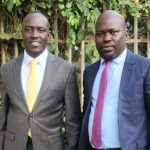On January 10, 2024, the Ministry of Agriculture, Animal Industry and Fisheries (MAAIF), in collaboration with government agencies, unveiled the “Uganda Climate Smart Transformational project,” a groundbreaking initiative valued at Shs1.3 trillion. Agriculture Minister, Mr. Frank Tumwebaze, announced the project’s details during the National Stakeholders’ Workshop held at Speke Resort Munyonyo, attended by Regional District Commissioners (RDCs), Chief Administrative Officers (CAOs), and District Production Officers (DPOs).
The six-year project targets key objectives, primarily focusing on increasing productivity, market access, and resilience within selected value chains. Minister Tumwebaze emphasized the project’s shift from seedling emphasis, attributing it to the success of the Parish Development Model in providing financial independence to smallholder farmers for purchasing their own seeds. The new initiative aims to intervene in harvesting, storage, primary processing, and market linkages, simultaneously revitalizing research stations like Kawanda, Serere, and Mbarara.
Transparency in beneficiary selection was underscored by the Minister to prevent the allocation of machinery to individuals unable to utilize them effectively, ensuring the avoidance of creating dormant assets.
The project comprises five interlinked components, as outlined by the Permanent Secretary of MAAIF, Maj Gen David Kasura-Kyomukama. These components include strengthening climate-smart agricultural research and seed/agro-climatic information systems, promoting the adoption of climate-smart agriculture technologies and practices, and market development and linkages for selected value chains, among others.
Spanning 69 districts across 13 agro-ecological zones, the project extends its impact to seven refugee hosting districts. With an ambitious goal, the initiative aims to directly benefit approximately 760,000 households, equating to 3.9 million individuals, and indirectly benefit an additional 1.9 million households, representing 9.5 million individuals.
Maj Gen Kasura-Kyomukama addressed potential challenges in implementation, highlighting the historical issue of land compensation delays. He asserted that the ministry would not compensate for land acquisition and emphasized the verification of land availability before initiating any investments in the district. Other potential challenges include concerns about accountability, monitoring and reporting, and a lack of ownership of investments.























